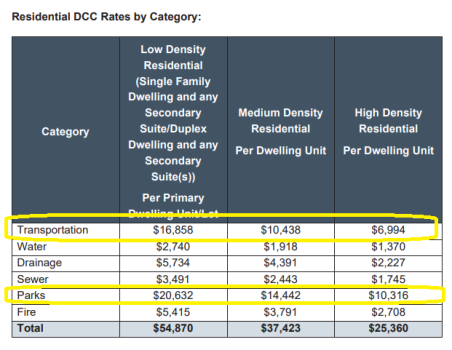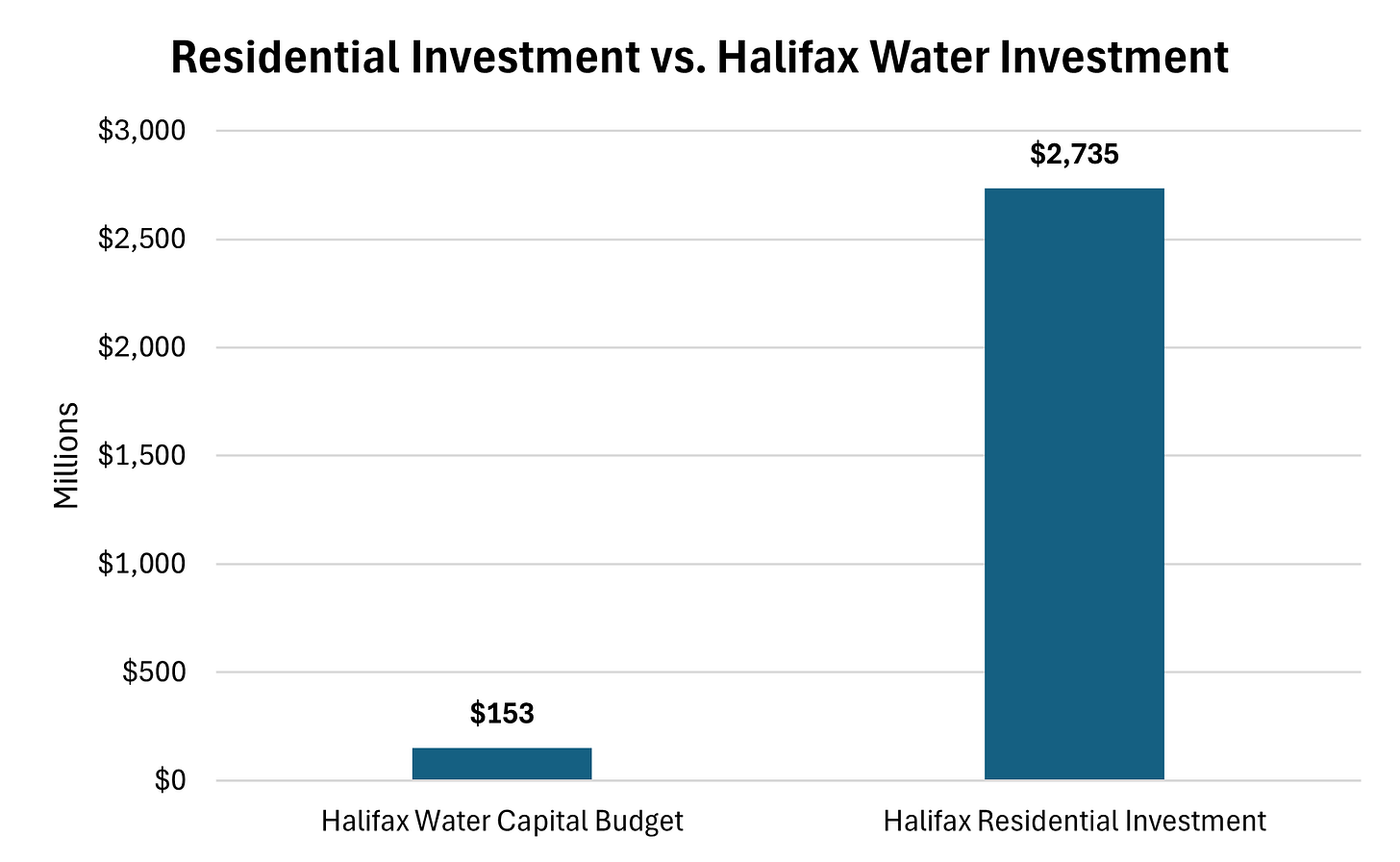Best Practice Review & Proposed Updates for Development Cost Charge Categories. Metro Vancouver Regional District, May 2025. 191 pages. Most of it is a report from Watson & Associates: Development Cost Charges Policy Analysis (Phase 1).
A key challenge for municipalities is figuring out how to fund the cost of maintaining infrastructure and building new infrastructure, especially water and sewer infrastructure. In the Lower Mainland, the Metro Vancouver Regional District is responsible for water and sewer infrastructure.
This report is basically trying to figure out how to better match the up-front regional DCC charges to the expected water and sewer usage for different housing forms (single family, multiplexes, townhouses, apartments) and for non-residential uses, to avoid inadvertently subsidizing one over another. It’s basically recommending modest changes to the status quo.
I read through the whole agenda. Some observations and questions:
(1) It's hard to project water usage. Why not just charge based on actual water usage, and pay for water and sewer infrastructure through water charges rather than through up-front lump-sum charges?
(2) Using up-front charges on new housing instead of full-cost water charges has a lot of disadvantages.
It ratchets up the floor on prices and rents - first-time homebuyers and renters are paying more in order to subsidize lower water charges for existing residents.
There's amplication factors which increase the cost: insurance, financing costs, property transfer tax.
For first-time homebuyers, they have to finance all of this by borrowing at mortgage rates, which are higher than what municipal governments would pay.
This is a leaky bucket: it affects existing housing as well as new housing, and the higher rents for existing housing go to private landlords rather than municipal governments.
The effect is to push more projects underwater, reducing the supply of new housing and resulting in higher prices and rents for both new and existing housing.
(3) The report includes a survey of how all municipalities charge DCCs. Langley Township has an interesting way of calculating DCC rates, with a per-unit charge which is discounted based on density (units per hectare): infrastructure costs for denser developments are lower. The commentary in the report is basically that Metro Van can't project what future development is likely to look like in terms of density, so they can't figure out how much they should be charging. ("Census information and development projections are not typically expressed based on density, so the data may not be readily available to calculate DCCs based on this methodology.")
(4) The report also looked at whether it would make sense to waive DCCs for purpose-built market rental housing (I had brought this up in November 2023), and recommends against it, citing a number of considerations. In particular: “Any waivers or reductions provided cannot be funded by other forms of development and would need to be funded by taxpayers/ratepayers.”
It also says that provincial legislation allows reduced charges for the category of "for-profit affordable rental housing," but not market rental housing. I'm puzzled why they couldn't just use the city of Vancouver's definition of for-profit affordable rental housing, which is basically that it has to include 20% below-market rentals.
(5) Reading through the details on DCC charges in each municipality, I was really struck by how much of those charges are for transportation (roads, presumably) and for parkland. Burnaby:
How much does infrastructure cost?
There was an eye-opening comment in the minutes from the previous Regional Planning Committee meeting, on June 5:
Matt Gemmel, Director, Policy and Public Affairs, Federation of Canadian Municipalities
Subject: Canada’s Infrastructure Gap
Matt Gemmel provided the committee with a presentation titled “Housing Enabling Infrastructure” outlining the work of the Federation of Canadian Municipalities (FCM) and highlighting the state of infrastructure across Canada and impacts of the current geopolitical climate. Members were informed that providing infrastructure to a new development in 2025 costs $126,000 per unit and that this does not include the costs of schools and social services. Given the high costs and Canada’s infrastructure deficit, FCM is advocating for the modernization of municipal funding to pay for community development and for the Federal Government to acknowledge the importance of municipalities in solving the housing crisis.
I was very surprised by this, given Deny Sullivan’s observation that the cost of housing is much, much larger than the cost of water/sewer infrastructure.
It turns out that this was a misunderstanding of the presentation. Link. What the presentation says is that the total cost of all existing municipal infrastructure is $126,000 per dwelling: “Total replacement value of municipally-owned core public infrastructure, per dwelling.” (The slide shows 2023 numbers.)
This doesn’t mean that new development translates into an infrastructure cost of $126,000 per new dwelling. For example, replacing existing low-density housing with new higher-density housing doesn’t require adding new roads (about 40% of total infrastructure value).
More
Metro Vancouver board plans to hike development charges on new housing (October 2023)
Two requests to Metro Vancouver Regional District (November 2023)
Municipal finance ideas (June 2024)
Urbanarium debate: the province is right to assert its powers over land use. Incentives for local governments are backwards. (October 2024)
Proposed Metro Van increase on property owners: $90/year. On renters trying to find a place: $600/year (October 2024)
Taxing land lift is an unreliable source of revenue (October 2024)
Replacing revenue from development charges (June 2025)
Utility financing of infrastructure to lower cost of housing. Benjamin Dachis, October 2024. Winner of the 2024 Hunter Prize.







